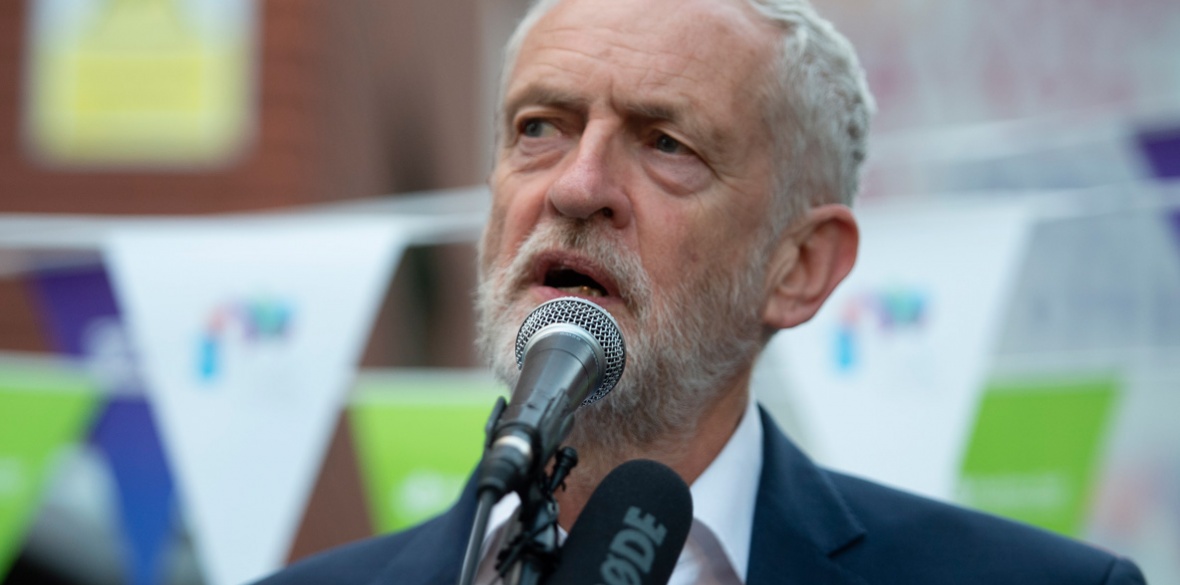This is the last article you can read this month
You can read more article this month
You can read more articles this month
Sorry your limit is up for this month
Reset on:
Please help support the Morning Star by subscribing here
LIBERAL DEMOCRAT leaders must think they are dreaming. From zombie status as the party which most spectacularly offended its largely middle-class electorate with the great betrayal on student fees — and then was punished at the polls — the reserve party of big business now finds itself unprecedentedly popular.
The YouGov poll for Murdoch’s Times newspaper put them on 24 per cent, beating the Brexit Party in second place on 22 per cent.
The two principal parties of alternate government — Conservatives and Labour — are neck and neck on 19 per cent, and the Greens are harvesting an 8 per cent bonus.
The Lib Dems’ renewed credibility as a repository of dissident votes from both Tories and Labour is largely the product of the unnatural polarisation over implementing Brexit which — on a turnout of just about a third of registered voters (itself a demographic which excludes a fair number of working-class citizens) — gave them an unprecedented opportunity to gather in Remain-inclined electors from all directions.
As a predictor of how people might vote in a general election You Gov’s poll should be treated with some caution.
Voting trends over more than a century show that the class character of every party remains remarkably constant.
It is a mistake to regard the Lib Dems as the party of the middle class. It is not who usually votes for them that determines their status as second string to the preferred party of the big bourgeoisie but in what class interests it operates.
This was demonstrated to great effect when, in coalition government, the Lib Dems backed every twist and turn of Tory austerity policy.
It is worth extending this critical method to all parties represented in Parliament. The Scottish National Party voted alongside the Ulster Unionists for Thatcher’s 1979 motion to bring down the Labour government.
With its present-day electoral base bulked up by Labour voters still mightily alienated by New Labour, it might be a bit more circumspect about pulling that stunt again. But don’t lay any money on it.
Labour’s greatest successes are when it mobilises its enormous reservoir of working-class support and wins a critical contingent of progressive middle-class voters to its policies.
As the support which accumulated during the last general election campaign showed, this is still Labour’s unique selling point for a nation whose experience of privatisation and marketisation in an economy centred on speculation and financial jiggery-pokery — while manufacturing and jobs have haemorrhaged — has convinced a numerical and political majority that new policies are needed.
Labour voters in appreciable number gave their votes to the Brexit Party, to the Lib Dems and to the Greens.
If we set aside the malign manoeuvring of Tony Blair’s spin doctor of death, to characterise any of these people as irredeemably reactionary is wrong.
Working-class voters who backed the Brexit Party no more buy Farage’s farrago of reactionary policies than do middle-class Labour Remainers think the EU is necessarily the apotheosis of internationalism.
Some might but much of this behaviour is explicable as illustrative of the failure of pre-existing politics to fully reflect the complexity of the public mood.
This is why an election is the only way in which the logjam can be broken. All politics and government is not reduced to Brexit alone.
And where Labour’s popular manifesto commitments do run up against the power of the EU to regulate economic life, enlightenment will come quickly enough.
In or out of the EU we need a government which has the credibility and resolve to tackle the real-life problems of the British people.










